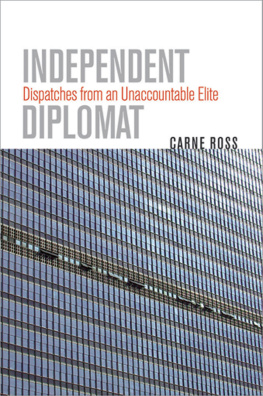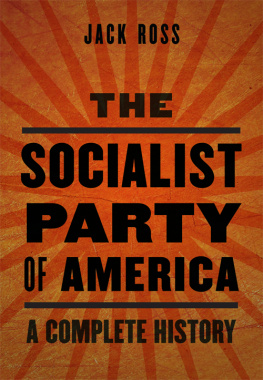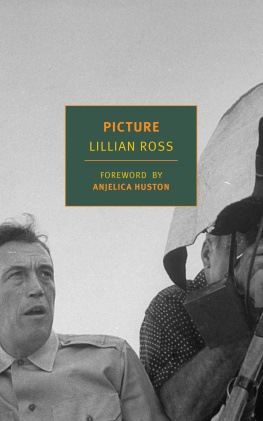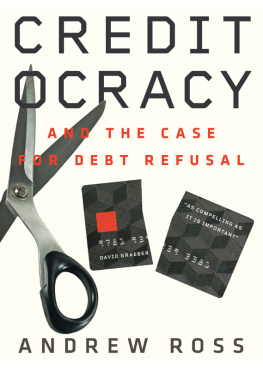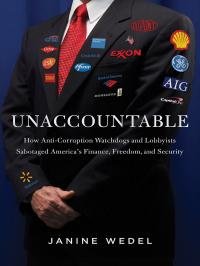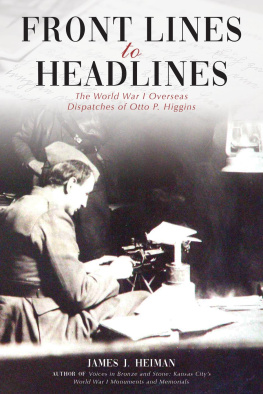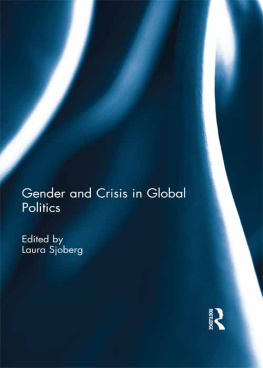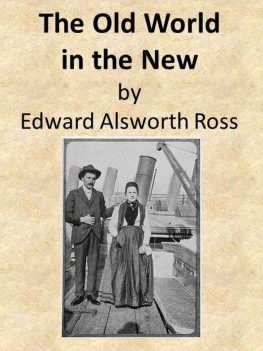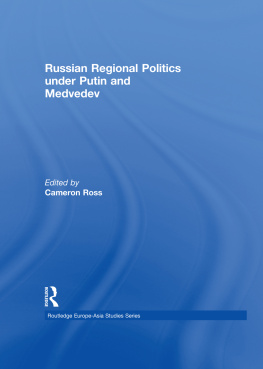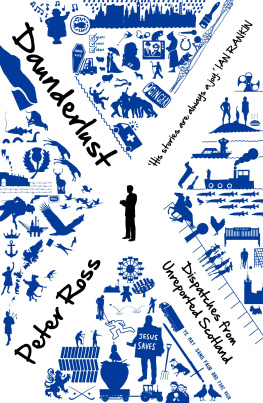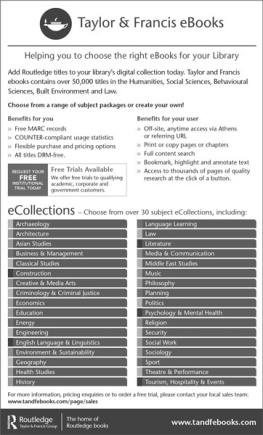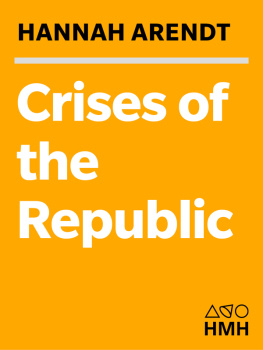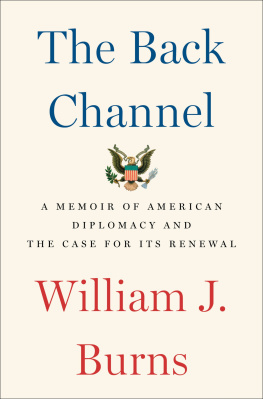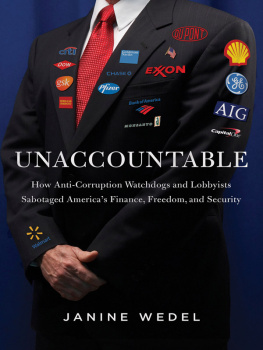Ross - Crises in World Politics: Independent Diplomat: Dispatches from an Unaccountable Elite
Here you can read online Ross - Crises in World Politics: Independent Diplomat: Dispatches from an Unaccountable Elite full text of the book (entire story) in english for free. Download pdf and epub, get meaning, cover and reviews about this ebook. City: Cornell University Press, publisher: Cornell University Press, genre: Politics. Description of the work, (preface) as well as reviews are available. Best literature library LitArk.com created for fans of good reading and offers a wide selection of genres:
Romance novel
Science fiction
Adventure
Detective
Science
History
Home and family
Prose
Art
Politics
Computer
Non-fiction
Religion
Business
Children
Humor
Choose a favorite category and find really read worthwhile books. Enjoy immersion in the world of imagination, feel the emotions of the characters or learn something new for yourself, make an fascinating discovery.
Crises in World Politics: Independent Diplomat: Dispatches from an Unaccountable Elite: summary, description and annotation
We offer to read an annotation, description, summary or preface (depends on what the author of the book "Crises in World Politics: Independent Diplomat: Dispatches from an Unaccountable Elite" wrote himself). If you haven't found the necessary information about the book — write in the comments, we will try to find it.
Ross: author's other books
Who wrote Crises in World Politics: Independent Diplomat: Dispatches from an Unaccountable Elite? Find out the surname, the name of the author of the book and a list of all author's works by series.
Crises in World Politics: Independent Diplomat: Dispatches from an Unaccountable Elite — read online for free the complete book (whole text) full work
Below is the text of the book, divided by pages. System saving the place of the last page read, allows you to conveniently read the book "Crises in World Politics: Independent Diplomat: Dispatches from an Unaccountable Elite" online for free, without having to search again every time where you left off. Put a bookmark, and you can go to the page where you finished reading at any time.
Font size:
Interval:
Bookmark:
Belgium, the Netherlands and Luxembourg.
A much-misused term, but in this context it meant chemical, nuclear and biological weapons, and missiles of over 150km range.
The United Nations Monitoring, Verification and Inspection Commission: this is my footnote in history since I invented UNMOVICs name, late one night during the negotiations on Security Council resolution 1284 (1999), which established the agency.
We must all be grateful to President George W. Bush who, albeit inadvertently, revealed the truth of the direct and demotic nature of real diplomacy at a G8 summit in July 2006. Overhead on a microphone, he tells Prime Minister Tony Blair (after thanking him for the gift of a sweater) that the solution to the Lebanon crisis was to get Syria to get Hizbollah to stop doing this shit. The President is far from alone in using such language. It is a common misperception that the behaviour and speech used in diplomacy are refined, elegant and measured (indeed the adjective diplomatic is used to describe such language). In reality diplomacy is often much more crude and harsh. For example, I was once told by a senior Asian ambassador: I would rather be fucked up the arse with a rusty spoon than agree with you, Carne.
Samantha Powers A Problem from Hell: America and the Age of Genocide, London: Flamingo, 2003, is particularly good.
It didnt help that of course we only had a full embassy in Belgrade, the capital of what was once Yugoslavia. Inevitably the reporting from there tended to reflect the Belgrade view of affairs. There were no posts in Zagreb, Sarajevo or Pristina. This is another way in which the statist view of the world contributed to our misunderstanding of that debacle.
This was that in German law, thanks to Germanys history of shifting borders (only finalised with reunification in 1990), citizenship is conferred by parentage (or race) not place of birth (ius sanguinis as opposed to ius soli), and thus ethnicity and religion become especially important in determining German-ness. This explains why a child born to Turkish parents, even if raised in Germany with German as its natural language, is not considered German, legally by the state or culturally by many if not most Germans. Another consequence was that a Russian of originally German stock (even if many generations previously) had an immediate right to German citizenship, while a Turk born in Germany, even if second or sometimes third generation, did not. One shocking piece of evidence supporting the theory is that German immigration officials were reportedly using lists of German settlers in Russia prepared by the SS in the Second World War to check the veracity of claims by Russians claiming German heritage.
At the request of the Foreign and Commonwealth Office, amendments have been made to this chapter to protect national security, as they have elsewhere in the book.
fragmented and essentially tribal nature of the country where all are minorities. A better strategy, they argue, would be to build a more decentralised structure. See, for an example, The Myth of One Afghanistan, Charles Santos, Los Angeles Times, May 25, 2003.
In recent years at the UN in New York it has become fashionable to call the non-permanent Council members, who serve on the Council for a two-year temporary term, elected members to emphasise their supposed legitimacy in contrast to the unelected status of the Permanent Five (P5) countries (the US, France, Russia, China, the UK). I have chosen not to use the term elected since it is inaccurate when most of the ten temporary members are not elected in contested elections, but are given seats by rote according to their regional group and place in the alphabet. Only two of the five countries elected every year win their seats through competitive elections of the UN membership, which are themselves often stitched up through backroom deals between countries.
You will not find in this chapter a discussion of the Oil-for-Food scandal that has erupted in recent years. On this I have nothing to add to the excellent Volcker report (to which I testified at length).
This term, now familiar to many, comprises non-conventional weapons including chemical, biological and nuclear ones. In Iraqs case it also meant ballistic missiles over 150km range (the full details were set out in the mother of all resolutions, Security Council resolution 687, which in 1991 set out the precise terms of Iraqs obligations).
I hesitate to confess that the delegates responsible for negotiating a particular issue in the Security Council are called experts in the unofficial yet traditional nomenclature of that organ. I hesitate to confess it because of course most of us, myself included, were not expert, having no first-hand knowledge whatsoever of the countries we were dealing with.
She said this during a television interview on the BBC.
The term Arab street is one that remains common in western diplomatic descriptions of the Middle East, despite Edward Saids compelling attack on such Orientalist depictions. Like other such locutions, it reveals far more about its user than what it purports to describe. When reading it, one can safely assume that the originator has been nowhere near the street, wherever that may be.
See, for example, Ssh, theyre arguing, Barbara Crossette, New York Times, 17 June 2001.
The word prohibition is a simplification since the import of the goods by Iraq was not explicitly prohibited in any case except that of purely military items, but the export of those goods on the list was to be reviewed by the UN sanctions committee (a sub-committee of the Security Council) and possibly approved if the Committee judged the end-use of those goods to be legitimately civilian.
These are discussed in chapter 4 below, but in general amount to the more rigorous enforcement not of generalised trade sanctions but of specific, targeted measures against the Iraqi governments illegal export of oil (through Turkey, Syria and the Gulf) and the stricter enforcement of import controls at Iraqs borders. A further technique was the aggressive pursuit of the regimes illegal financial holdings abroad. None of these measures was ever properly or energetically pursued by either the UK or US governments, thus helping to create the situation where sanctions not only failed to force Iraqi compliance but also produced negative humanitarian consequences, a doubly bad policy.
A version of this chapter first appeared in the Financial Times, 29 January 2005.
This was the official British inquiry into the use of intelligence on Iraqs WMD headed by Lord Butler, to which I testified in the summer of 2004.
The Volcker Inquiry into the oil-for-food scandal found no such evidence.
Game metaphors have been common in theories of international relations for some time. Domino Theory, for example, proposed, erroneously as it turned out, the idea that if one country fell to communism, its neighbours would tip over into communism in an unstoppable chain reaction. Domino Theory was one of the main justifications for US involvement in Vietnam.
This policy was thankfully soon changed, largely as a result of pressure from the unions. Britain now has its first openly gay Ambassador (though there were presumably many gay Ambassadors albeit in the closet before).
As George Lakoff has asked in Whose Freedom?, New York: Farrar, Straus and Giroux, 2006.
Since this debacle, it has been commonplace for British officials to claim that the threatened French veto blocked the resolution. In fact, there is no evidence that the draft resolution had attracted close to the nine votes required to pass in any case. My own research with other countries on the Security Council at the time suggests the UKs true vote count was closer to six. In other words, the putative veto was irrelevant, as the resolution could not have been voted through in any case.
Font size:
Interval:
Bookmark:
Similar books «Crises in World Politics: Independent Diplomat: Dispatches from an Unaccountable Elite»
Look at similar books to Crises in World Politics: Independent Diplomat: Dispatches from an Unaccountable Elite. We have selected literature similar in name and meaning in the hope of providing readers with more options to find new, interesting, not yet read works.
Discussion, reviews of the book Crises in World Politics: Independent Diplomat: Dispatches from an Unaccountable Elite and just readers' own opinions. Leave your comments, write what you think about the work, its meaning or the main characters. Specify what exactly you liked and what you didn't like, and why you think so.

